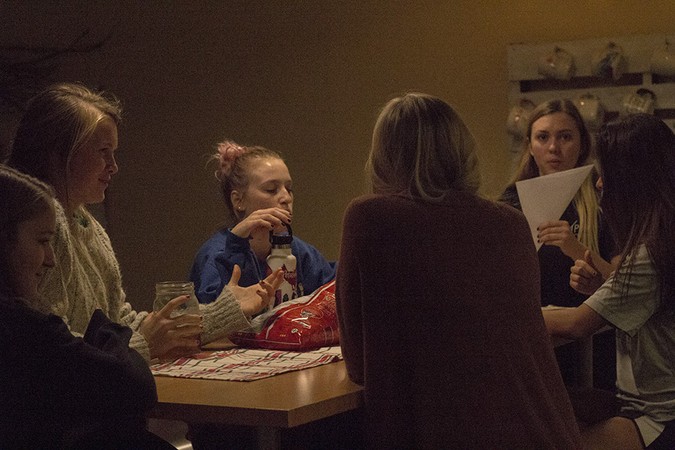Resident Advisors present a unique hurdle struggling students must overcome to seek help. Rather than presenting a warm, invitational atmosphere meant to comfort the model student-in-need, intimidation often characterizes speaking to an RA—especially in times of additional strife.
Biola Residence Life does not want students to see it in this light, and students do not want this from them either. RAs want to be a legitimate resource, there to support students and provide immediate needs—mental, spiritual or emotional. So why has the student body instead ostracized them?
TOO MUCH PRESSURE
The “behavior contract”—or community standards—may have something to say about it. Students generally hesitate to trust authority figures on this campus for fear of fines or expulsion. The reason? Consequences of disobedience cannot often be discussed, causing fear to perpetuate many falsities in the conversation.
For instance, sharing with an RA about a night of drinking is unlikely to get you expelled. Students actually get extensive guidance through Biola’s Spiritual Development and pastoral care until they can understand why they wanted to drink in the first place. Whether this proves helpful depends on the student.
The pressure RAs at Biola feel to seek perfection breaks them down faster than Resident Directors can pick up the pieces. Where they did not consider it before, several RAs decide to take up therapy at the Biola Counseling Center. Some surrender keeping up with chapel credits, intramurals and other extracurriculars due to exhaustion.
A large reason for this is the advertisement of the RA position as a job and not an outlet for ministry. Ministry work historically requires less pay, so the RA stipend would fit given that definition. However, RAs do not only perform ministry work—they represent every resource Biola has to offer in addition to acting as first-response psychologists to residents in need.
On top of the pressure demanded of RAs to have their lives together, ResLife has done a poor job of providing the necessary support in the toughest times. Should RAs choose to protect their resident’s trust at all costs, or write a report and direct them to a more qualified resource in event of a questionable situation? Making these decisions every day can lead RAs to crack under the pressure.
THE PROPOSAL
Biola can better provide for its students without demanding complete transparency and possible punishing consequences. One suggestion is a spiritual resource in the form of a volunteer. This volunteer would cover spiritual and emotional care for that floor of students. At Pepperdine University, an RA and a Spiritual Life Advisor live on every floor.
At Biola, this could mean exchanging 10 to 15 chapel credits a semester for a commitment to offer care without the pressure of sharing the struggles students tell them in confidence—similar to Biola’s Spiritual Directionprogram. Students will feel more freedom to confess struggles to this counselor, or SLA, knowing their trust will not be in jeopardy and will instead receive support and helpful resources.
Residents are largely unaware that RAs are just as helpful and trustworthy. However, the splitting of the RA position into two parts would solidify the difference and minimize this hesitancy, previously rooted in fear.
With the addition of a volunteer SLA, the RAs duties would solely revolve around event planning and the physical needs of the students. Students would go to them if they need to write a more specific report or have a grievance on how the dorm handles things on a broader scale.
The benefit to this model substantially lessens the pressure for RAs to have every level of their lives filled out and balanced in order to be peer leaders. As a bonus, Biola can maintain the pay already awarded to RAs—not enough to cover housing in Biola’s cheapest dorm room, let alone the mental stress—without requiring them to fulfill aspects of the job they did not sign up for.







